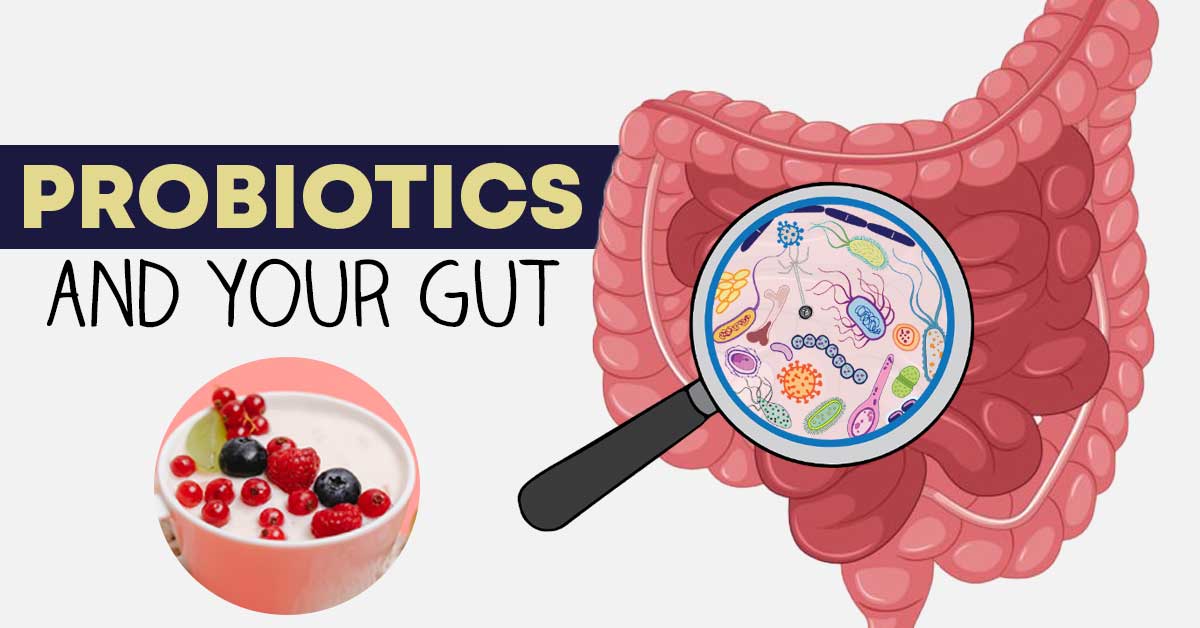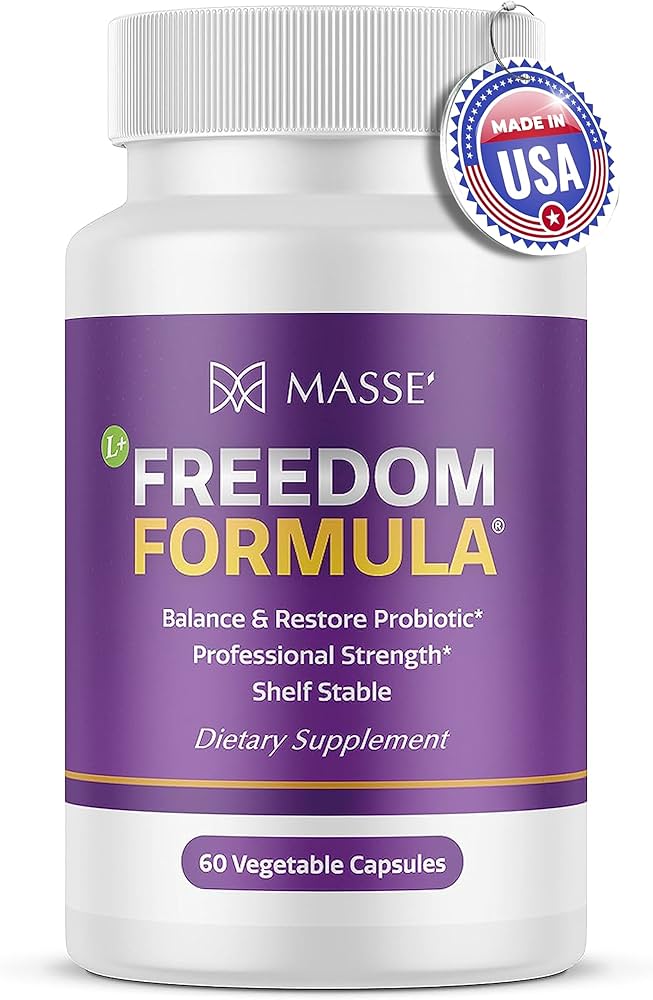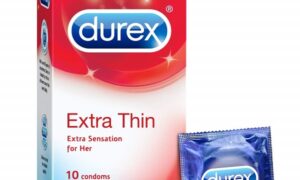Gut probiotics are beneficial bacteria that support digestive health. They help maintain a balanced gut microbiome.
Gut probiotics play a crucial role in promoting overall digestive wellness. These live microorganisms help balance the natural bacteria in your digestive system, leading to improved digestion and nutrient absorption. Consuming foods rich in probiotics, such as yogurt, kefir, and fermented vegetables, can enhance gut health.
Probiotics also support immune function, reducing the risk of infections and inflammation. They may alleviate symptoms of digestive disorders like irritable bowel syndrome (IBS) and inflammatory bowel disease (IBD). Incorporating probiotics into your daily diet can lead to better overall health and well-being. Probiotics are vital for maintaining a healthy gut and ensuring your digestive system functions optimally.
What Are Probiotics?
Gut probiotics are friendly bacteria that live in our intestines. These microorganisms help us stay healthy. They balance our gut, boost our immunity, and aid digestion. But what are probiotics exactly? Probiotics are live bacteria and yeasts good for our health, especially our digestive system. They are often called “good” or “helpful” bacteria because they help keep our gut healthy.
Types Of Probiotics
There are many types of probiotics. Each type has different benefits. Here are some common types:
- Lactobacillus: Found in yogurt and other fermented foods. Helps with diarrhea and lactose intolerance.
- Bifidobacterium: Found in some dairy products. Eases symptoms of irritable bowel syndrome (IBS).
- Streptococcus thermophilus: Used in dairy production. Aids in lactose digestion.
- Saccharomyces boulardii: A yeast found in probiotics. Helps with diarrhea and gut health.
Different probiotics serve different functions. It’s essential to choose the right one. Here is a table showing some probiotics and their benefits:
| Probiotic Type | Benefits |
|---|---|
| Lactobacillus | Diarrhea relief, lactose digestion |
| Bifidobacterium | IBS relief, immune support |
| Streptococcus thermophilus | Lactose digestion, gut health |
| Saccharomyces boulardii | Diarrhea relief, gut health |
Sources Of Probiotics
Probiotics are found in various foods and supplements. Here are some natural sources:
- Yogurt: Contains live cultures like Lactobacillus and Bifidobacterium.
- Kefir: A fermented milk drink rich in probiotics.
- Sauerkraut: Fermented cabbage loaded with beneficial bacteria.
- Miso: A Japanese seasoning made from fermented soybeans.
- Tempeh: A fermented soybean product high in probiotics and protein.
- Kimchi: A Korean dish of fermented vegetables.
Probiotic supplements are also available. They come in various forms like capsules, tablets, and powders. It’s crucial to choose a high-quality product. Check for live and active cultures on the label.
Eating a variety of these foods can boost your gut health. Probiotics not only help digestion but also improve overall health.
Benefits For Gut Health
Gut probiotics offer numerous benefits for gut health. These friendly bacteria help balance the gut microbiome, improving digestion and enhancing immune function. The right probiotics can make a world of difference in your overall well-being.
Digestive Support
Probiotics play a crucial role in digestive support. They help break down food and absorb nutrients. This ensures that your body gets the maximum benefit from what you eat.
Probiotics also help in:
- Reducing bloating and gas
- Preventing constipation and diarrhea
- Balancing the gut flora to prevent digestive issues
Studies have shown that taking probiotics can relieve symptoms of irritable bowel syndrome (IBS). This can make your daily life much more comfortable. Probiotics may also help in managing lactose intolerance. They help break down lactose, the sugar in milk, making it easier to digest.
Here’s a table showing some common probiotic strains and their benefits:
| Probiotic Strain | Benefit |
|---|---|
| Lactobacillus acidophilus | Improves digestion and nutrient absorption |
| Bifidobacterium lactis | Reduces bloating and gas |
| Lactobacillus casei | Helps in preventing diarrhea |
Including probiotics in your diet can make a significant difference. They help maintain a healthy digestive system and improve overall gut health.
Immune Function
Probiotics have a profound impact on immune function. A healthy gut microbiome can boost your immune system. This helps your body fight off infections and stay healthy.
Key benefits of probiotics for immune function include:
- Enhancing the production of antibodies
- Stimulating the activity of immune cells like T-lymphocytes and natural killer cells
- Reducing the risk of respiratory infections
Research shows that probiotics can reduce the duration and severity of the common cold. They also help in managing allergies by balancing the immune response.
Here’s a table showing some probiotic strains and their benefits for the immune system:
| Probiotic Strain | Immune Benefit |
|---|---|
| Lactobacillus rhamnosus | Boosts antibody production |
| Bifidobacterium bifidum | Enhances immune cell activity |
| Lactobacillus reuteri | Reduces respiratory infections |
Adding probiotics to your diet can help strengthen your immune system. This keeps you healthy and less prone to infections.
Probiotic Foods
Probiotic foods are crucial for a healthy gut. These foods contain live beneficial bacteria that help balance gut flora. They support digestion, boost immunity, and improve overall well-being. Incorporating probiotic-rich foods into your diet is an excellent way to maintain gut health.
Fermented Foods
Fermented foods are rich in probiotics. They undergo a process called fermentation, where natural bacteria feed on the sugar and starch in the food. This process creates lactic acid, which helps preserve the food and boosts its nutrient content. Here are some popular fermented foods:
- Yogurt: Made from fermented milk, it’s rich in probiotics like Lactobacillus and Bifidobacterium.
- Kefir: A fermented milk drink that’s more potent than yogurt in probiotic content.
- Kimchi: A spicy Korean dish made from fermented vegetables, primarily cabbage.
- Sauerkraut: Fermented cabbage that’s packed with probiotics and vitamins.
- Miso: A Japanese seasoning made from fermented soybeans, rich in probiotics and enzymes.
Incorporating fermented foods into your diet can be simple. Here are some easy ways to do it:
- Add yogurt to your breakfast with fruits and nuts.
- Drink a glass of kefir as a morning snack.
- Include a side of kimchi or miso soup with your meals.
- Top your salads with sauerkraut for extra crunch and flavor.
Fermented foods not only support gut health but also enhance the flavor of your meals. They are versatile and can be easily incorporated into various dishes.
Dairy Products
Dairy products are another excellent source of probiotics. They are not only rich in beneficial bacteria but also provide essential nutrients like calcium and protein. Here are some probiotic-rich dairy products:
| Product | Probiotic Content | Benefits |
|---|---|---|
| Yogurt | Lactobacillus, Bifidobacterium | Improves digestion, boosts immunity |
| Kefir | Multiple strains of probiotics | Enhances gut health, supports bone health |
| Cheese | Lactobacillus, Acidophilus | Strengthens bones, aids digestion |
Adding these dairy products to your diet can be beneficial:
- Yogurt: Enjoy it as a snack or with breakfast.
- Kefir: Drink it plain or add it to smoothies.
- Cheese: Use it in sandwiches, salads, or as a snack.
Dairy products not only provide probiotics but also offer a delicious way to support your gut health. They are easily accessible and can be incorporated into various meals and snacks.
Supplements Vs. Foods
Gut probiotics are essential for a healthy digestive system. They help balance the gut flora and improve overall health. When considering probiotics, you can choose between supplements and foods. Each option has its benefits and drawbacks. Understanding these can help you make an informed decision for your gut health.
Choosing Supplements
Probiotic supplements offer a convenient way to boost your gut health. They come in various forms like capsules, tablets, and powders. These supplements contain specific strains of beneficial bacteria.
Benefits of Probiotic Supplements:
- Convenience: Easy to take and carry.
- Controlled Dosage: Precise amounts of specific strains.
- Long Shelf Life: Often more stable than food sources.
When choosing a supplement, consider the following factors:
- Strain Diversity: Look for multiple strains for a broader range of benefits.
- CFU Count: Higher Colony Forming Units (CFUs) mean more bacteria.
- Quality and Purity: Choose reputable brands with third-party testing.
Here’s a quick comparison table to help you decide:
| Factor | Probiotic Supplements |
|---|---|
| Convenience | High |
| Dosage Control | High |
| Strain Variety | Varies |
| Cost | Varies |
Natural Food Sources
Natural food sources of probiotics include fermented foods. These foods are rich in live bacteria that benefit your gut. Eating a variety of these foods can improve your gut health naturally.
Popular Probiotic Foods:
- Yogurt: Contains Lactobacillus and Bifidobacterium.
- Kefir: A fermented milk drink with diverse bacteria.
- Sauerkraut: Fermented cabbage rich in probiotics.
- Kimchi: Spicy fermented vegetables, usually cabbage.
- Miso: Fermented soybean paste used in soups.
Benefits of getting probiotics from food include:
- Nutrition: Provides additional nutrients like vitamins and minerals.
- Flavor: Adds variety and taste to your diet.
- Natural: No added chemicals or preservatives.
Here’s a table summarizing some common probiotic foods:
| Food | Probiotic Strains |
|---|---|
| Yogurt | Lactobacillus, Bifidobacterium |
| Kefir | Various bacteria and yeasts |
| Sauerkraut | Lactobacillus |
| Kimchi | Lactobacillus |
| Miso | Aspergillus oryzae |
Probiotic Strains
Gut probiotics are friendly bacteria that help keep your digestive system healthy. Probiotic strains are specific types of these bacteria. They play various roles in maintaining gut health. Learning about these strains can help you choose the right probiotic supplement. Two common strains are Lactobacillus and Bifidobacterium.
Lactobacillus
Lactobacillus is a well-known probiotic strain. It helps in breaking down food and absorbing nutrients. This strain is found in the mouth, gut, and female reproductive system. Here are some key points about Lactobacillus:
- Improves digestion: Lactobacillus helps break down lactose, making it easier for people with lactose intolerance to digest dairy products.
- Boosts immunity: It enhances the body’s defense system, protecting against harmful bacteria and viruses.
- Reduces inflammation: This strain helps in reducing gut inflammation, which can ease symptoms of irritable bowel syndrome (IBS).
There are several types of Lactobacillus, each with unique benefits:
| Type | Benefit |
|---|---|
| Lactobacillus acidophilus | Supports digestive health and boosts the immune system. |
| Lactobacillus rhamnosus | Helps prevent diarrhea and reduces allergy symptoms. |
| Lactobacillus casei | Aids in digesting a wide variety of nutrients. |
Bifidobacterium
Bifidobacterium is another essential probiotic strain. It is one of the first types of bacteria to colonize the intestines of newborns. This strain is crucial for maintaining a healthy gut. Here are some highlights:
- Enhances gut health: Bifidobacterium helps maintain the balance of good and bad bacteria in the gut.
- Improves digestion: It aids in breaking down complex carbohydrates, fats, and proteins.
- Supports the immune system: This strain strengthens the gut barrier, protecting against infections.
Different types of Bifidobacterium offer various benefits:
| Type | Benefit |
|---|---|
| Bifidobacterium longum | Reduces gut inflammation and improves overall gut health. |
| Bifidobacterium bifidum | Boosts the immune system and enhances nutrient absorption. |
| Bifidobacterium lactis | Improves lactose digestion and reduces bloating. |

Credit: www.amazon.com
Potential Side Effects
Gut probiotics are beneficial bacteria that live in your digestive system. They help with digestion, boost the immune system, and maintain overall gut health. Despite their many benefits, some people may experience potential side effects when taking probiotics. Understanding these effects can help you make an informed decision.
Mild Reactions
Most people tolerate probiotics well, but some might experience mild reactions. These reactions are usually temporary and go away as your body adjusts. Here are some common mild side effects:
- Bloating: You might feel your stomach swelling or feel gassy.
- Gas: Increased gas is a common sign that probiotics are working.
- Diarrhea: Some may have loose stools initially.
- Stomach cramps: Mild discomfort in the stomach area.
These side effects are usually not serious and tend to resolve on their own. To minimize these reactions, start with a smaller dose and gradually increase it.
When To Consult A Doctor
In some cases, side effects can be more severe. It’s important to know when to consult a doctor:
- Severe abdominal pain: If the pain is intense or persistent.
- Allergic reactions: Symptoms like rash, itching, or swelling.
- Blood in stool: Any sign of blood should be checked immediately.
- Prolonged diarrhea: Diarrhea lasting more than a few days.
- High fever: A fever above 101.5°F (38.6°C).
People with underlying health conditions or weakened immune systems should be extra cautious. Always consult your doctor before starting any new supplement. Monitoring your body’s response can help you use probiotics safely and effectively.
Incorporating Probiotics
Probiotics are live bacteria and yeasts that benefit your health, especially your digestive system. They help maintain a healthy balance of gut flora, which is essential for digestion, immune function, and overall well-being. Incorporating probiotics into your daily routine is simple and can make a big difference in your health. Let’s explore some effective ways to include probiotics in your diet.
Daily Intake Tips
Including probiotics in your daily diet is easy with these tips:
- Choose Probiotic-Rich Foods: Opt for foods like yogurt, kefir, sauerkraut, kimchi, and miso. These foods are naturally rich in probiotics.
- Read Labels: Look for labels that say “live and active cultures” to ensure the product contains beneficial probiotics.
- Take Supplements: Probiotic supplements are a convenient way to ensure you get enough probiotics daily. Choose high-quality supplements with multiple strains.
- Start Small: If you’re new to probiotics, start with small amounts and gradually increase your intake. This helps your digestive system adjust.
- Consistency is Key: Make probiotics a regular part of your diet for the best results. Consistency helps maintain a healthy balance of gut bacteria.
Here’s a simple table to help you remember some probiotic-rich foods:
| Food | Probiotic Content |
|---|---|
| Yogurt | Contains live and active cultures like Lactobacillus |
| Kefir | Rich in various strains of probiotics |
| Kimchi | Contains Lactobacillus and other beneficial bacteria |
| Sauerkraut | Rich in Lactobacillus |
| Miso | Contains a variety of probiotics |
Meal Ideas
Incorporating probiotics into your meals can be delicious and easy. Here are some meal ideas:
- Breakfast: Start your day with a bowl of yogurt topped with fresh fruits and a sprinkle of granola. Add a spoonful of chia seeds for extra fiber.
- Lunch: Make a nutrient-packed salad with mixed greens, cucumbers, tomatoes, and a serving of kimchi or sauerkraut. Top with grilled chicken or tofu for protein.
- Snack: Enjoy a smoothie made with kefir, a banana, and a handful of berries. Blend until smooth for a refreshing and probiotic-rich snack.
- Dinner: Create a miso soup with tofu, seaweed, and green onions. Miso is a fermented soybean paste that is rich in probiotics.
- Dessert: Try a probiotic-rich frozen yogurt. Top with honey and nuts for added flavor and crunch.
These meal ideas make it easy to include probiotics in your diet:
| Meal | Probiotic Food | Additional Ingredients |
|---|---|---|
| Breakfast | Yogurt | Fruits, Granola, Chia Seeds |
| Lunch | Kimchi/Sauerkraut | Mixed Greens, Cucumbers, Tomatoes, Chicken/Tofu |
| Snack | Kefir | Banana, Berries |
| Dinner | Miso | Tofu, Seaweed, Green Onions |
| Dessert | Frozen Yogurt | Honey, Nuts |

Credit: integracareclinics.com

Credit: www.cbc.ca
Frequently Asked Questions
What Is The Best Probiotic For Gut Problems?
The best probiotic for gut problems often includes strains like Lactobacillus and Bifidobacterium. Always consult your doctor for personalized advice.
Are Gut Probiotics Good For You?
Yes, gut probiotics are beneficial. They improve digestion, boost immunity, and support overall gut health. Consult a doctor for personalized advice.
Do Probiotics Clean Out Your Gut?
Probiotics don’t clean your gut. They support a healthy balance of gut bacteria, aiding digestion and boosting immunity.
How Do I Know If I Need Probiotics?
You might need probiotics if you experience digestive issues, frequent infections, or after taking antibiotics. Consult a healthcare professional for advice.
Conclusion
Embracing gut probiotics can significantly improve your digestive health and overall well-being. They help maintain a balanced gut flora. By incorporating probiotics into your daily routine, you can enhance nutrient absorption and boost immunity. Make gut health a priority and experience the transformative benefits of probiotics today.





















